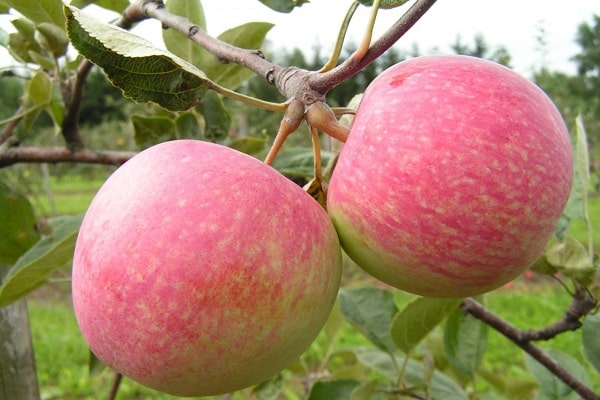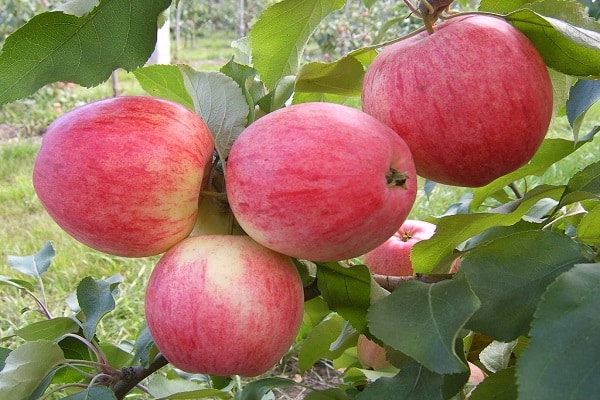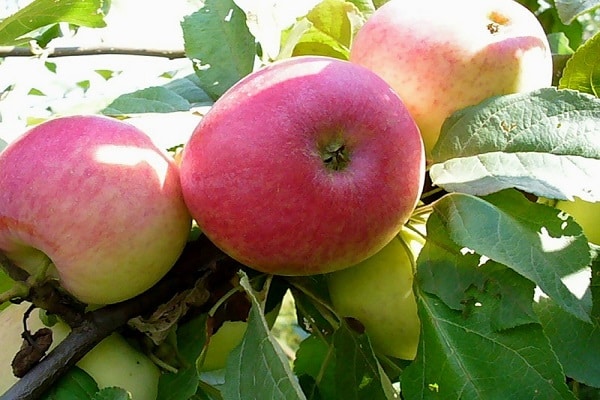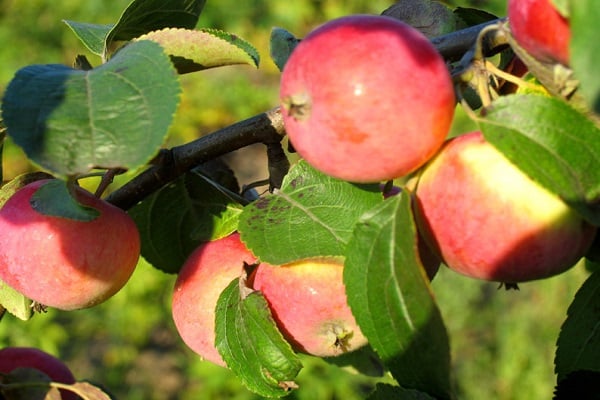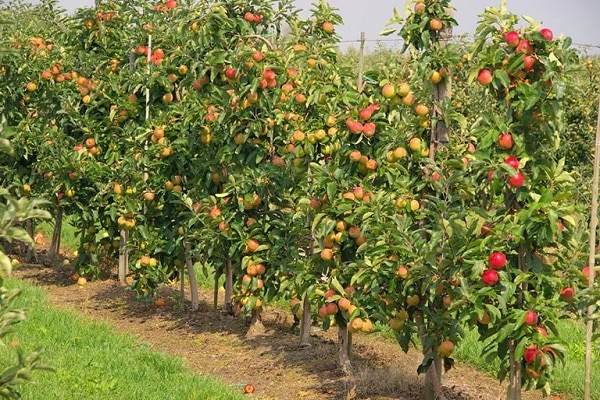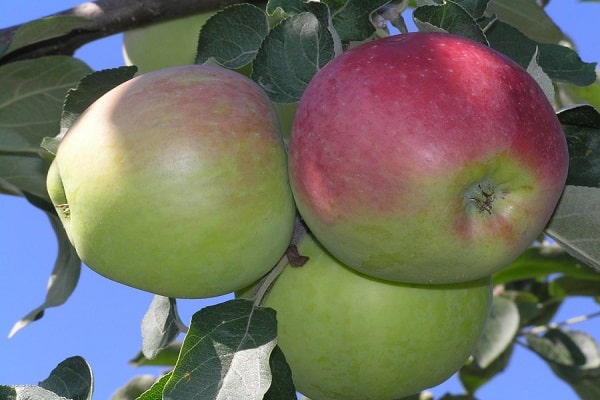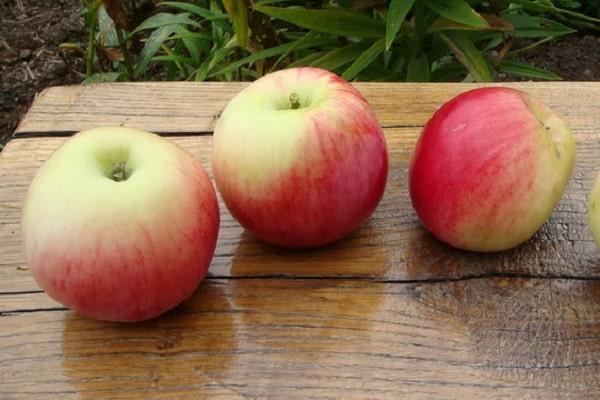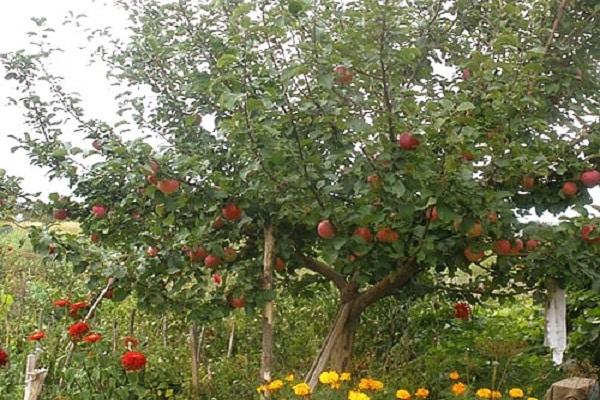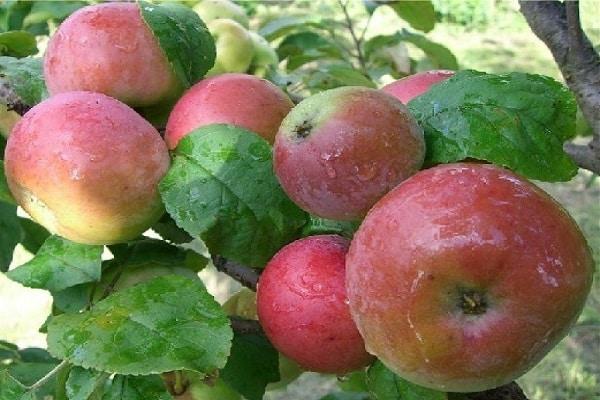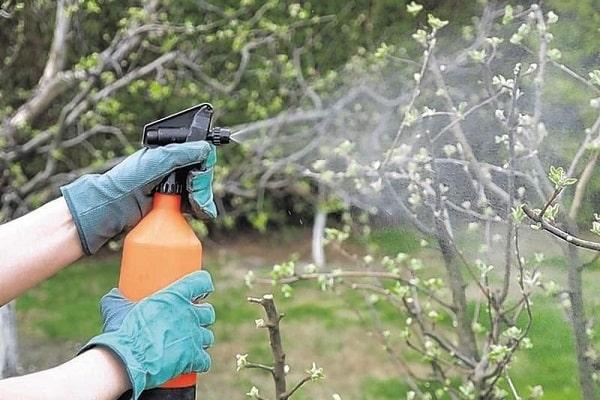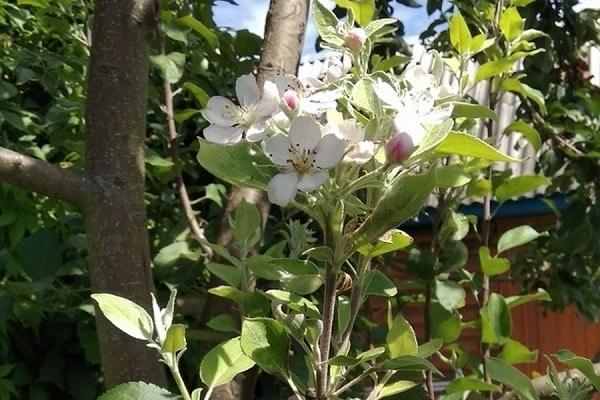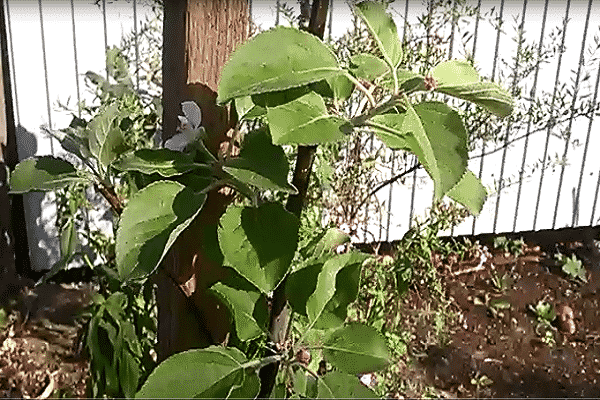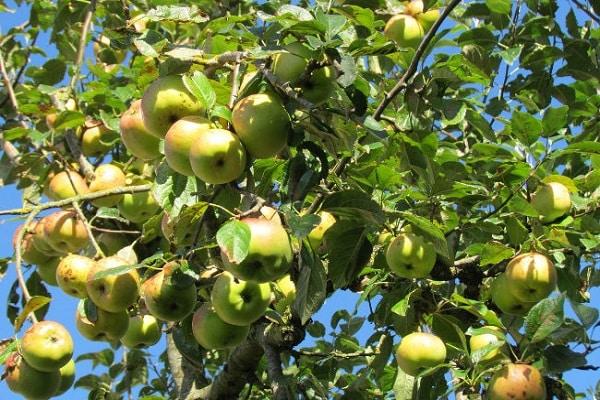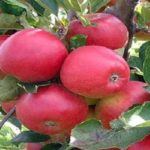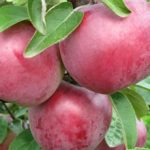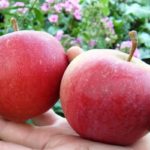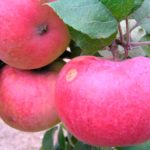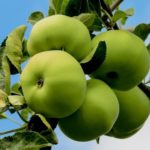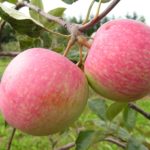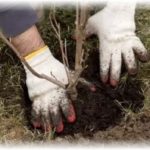In winter, fresh fruits are very necessary for people. But when purchasing them in a store, you cannot be sure of their benefits. Therefore, it is better to grow your own apples on the plot, which last a long time, and their taste becomes better. It is worth trying to grow one of the popular varieties of the Augusta apple tree, obtained by biologists by crossing Papirovka and Orlik.
- Description of the Augusta apple tree
- Characteristics of the variety
- Tree dimensions
- Leaf size and color
- Annual growth
- Productivity
- Periodicity in fruiting
- Tasting assessment
- Winter hardiness
- Disease resistance
- Advantages and disadvantages of apple trees
- How to choose the right seedlings for planting
- Landing specifics
- Place and timing of landing
- Pit preparation
- Required distance between seedlings
- Landing technology
- Features of wood care
- Pruning and crown formation
- Pollinator varieties
- Watering
- Loosening and mulching
- Fertilizers
- Preparing for winter
- Diseases and pests of the Augusta variety
- Harvest and storage
Description of the Augusta apple tree
The apple tree is a late-summer triploid species of fruit crop. Such plants are obtained by heterochromosomal crossing. Thanks to the work of breeders, the Augusta apple tree was bred in a similar way. Therefore, she has many positive qualities. The tree is different:
- large rounded crown;
- shoots are thick, slightly pubescent;
- gray bark on the trunk and main branches;
- medium-sized fruits, weighing 160 grams.
In addition to its beautiful appearance and tasty fruits, the Augusta apple tree is valued for being unpretentious in care and easily surviving climatic anomalies.
Characteristics of the variety
To choose a suitable apple tree variety for growing, you need to know its main characteristics. They are associated with productivity, crop stability and taste of apples.
Tree dimensions
The hybrid is characterized by tall stature. The apple tree grows up to 4 meters. In a rounded crown, the branches are located at right angles to the trunk. The sparseness of the crown provides good illumination and ventilation to the tree, which is important for fruiting.
Leaf size and color
Light green, slightly wrinkled leaves appear on grayish branches and shoots from the buds. The leaf plate is large, wide, with a narrow, helical tip at the top. There are leaves on the branches that look like a spoon, as they have upward-curved edges.
Annual growth
The apple tree variety grows from 7 to 10 centimeters every year. Therefore, the tree is classified as fast-growing.
Productivity
Apples of the Augusta hybrid reach technical maturity in the last ten days of summer. The apple tree is valued because it can produce up to 20-25 kilograms of apples from a 5-8 year old tree. Subsequently, when harvesting the fruits, about 100 kilograms are obtained.
Periodicity in fruiting
The first fruits on an apple tree appear in the 4-5th year of life. If the first harvests are small, then they increase every year.
Tasting assessment
Medium-sized fruits differ:
- oblong shape with ribbing;
- yellowish-green cover with diffuse blush;
- whitish subcutaneous dots;
- fine-grained pulp;
- underdeveloped seeds, light brown.
The taste testers give the apples a score of 4.4 points. They contain 10% sugar and 20.6 milligrams of acid per 160 gram apple.
Winter hardiness
The variety belongs to those types of fruit crops that can withstand frosts of minus 30 degrees. Shoots and buds are rarely damaged by returning spring frosts.
Disease resistance
Breeders claim that the apple tree variety is completely not susceptible to scab. But other fungal diseases can occur due to improper cultivation and care of the tree.
Advantages and disadvantages of apple trees
For gardeners, the advantages of choosing the Augusta apple tree variety are important. There are several of them, among which are:
- high marketability and keeping quality of fruits;
- dessert taste of apples;
- frost resistance and unpretentiousness of the crop;
- the ability to grow trees in many regions not only with warm but also temperate climates.
Disadvantages include susceptibility to certain fungal diseases. And the ripe fruits of the variety are stored only for 1-2 months.
How to choose the right seedlings for planting
For planting, it is better to purchase hybrid seedlings from a nursery. They will offer annual apple trees that do not yet have branches. Two-year-old specimens with 2-3 branches growing in different directions are also suitable. When purchasing, be sure to carefully examine the bark of the seedling and its roots. All parts of the plant should not have any damage or rotten areas.
Landing specifics
The late-summer type of apple tree must be provided with such a plot in the garden so that it can comfortably grow and bear fruit. It is necessary to carry out planting correctly, since this procedure will allow the tree to develop properly in the future.
Place and timing of landing
Like any variety, Augusta needs a sunny place in the garden. Northwestern or northeastern slopes are best suited. In this case, the soil should be nutritious, loose, neutral in acidity. The occurrence of groundwater at the landing site is at a depth of 2.5 meters.
The best time to plant an apple tree is spring or autumn. In April, planting is suitable in areas with cold winters, and in October in areas where winter begins according to the calendar.
Pit preparation
After dividing the site, they begin digging planting holes. They are prepared in advance, 3-4 weeks in advance. Their depth should be from 40-50 centimeters with a width of 75-100 centimeters.
Required distance between seedlings
For a tall apple tree, it is necessary to dig holes with a distance of 5-6 meters between them. The same gap is left between the rows.
Landing technology
Before planting, prepare a nutrient mixture of humus, superphosphate and potassium salt. Organics need 2-3 buckets, and 200-300 grams of mineral components are enough. All this is mixed with the fertile layer taken out of the hole during digging. Fill the hole one-third full.The seedling is kept in a clay pot for an hour, with the roots dipped into it.
The tree is placed on a mound made in the middle of the hole, with the roots straightened. A peg for a garter is stuck nearby. Begin to sprinkle the seedling with soil, leaving the root collar at the level of the ground surface or 1-2 centimeters higher.
After planting, compact the soil around the trunk with the soles of your feet and make a roller. It is necessary to water the seedling, taking 3-5 buckets of water. Then lay a layer of mulch made from humus or manure.
Features of wood care
To quickly adapt the apple tree and its development, proper care is needed. This includes crown formation and soil maintenance in the garden.
Pruning and crown formation
For young trees, it is necessary to shorten part of the annual shoots by 1/3 or 1/5 the length of the annual growth in spring or autumn. This is how a neat round crown appears with the correct arrangement of branches. Particular emphasis is placed on thinning 2nd order branches. But if the growth is small, within 30 centimeters, then the shoots are not touched. The formation of the crown must be completed by the fruiting period, that is, in the 4-5th year after planting.
In an adult tree, you need to remove those branches that are weak, damaged or growing inside the crown.
Pollinator varieties
To increase the productivity of the Augusta apple tree, varieties of fruit crops are planted nearby that bear fruit at the same time as the hybrid. The Augusta apple tree is partially self-fertile, so pollinators will make it more productive.
Watering
Irrigation of apple trees is carried out 2-3 times per season, using 50-60 liters of water per tree. In dry summers, increase the frequency of watering.
Loosening and mulching
The tree trunk circle must be kept clean and periodically loosened.In spring and autumn, the soil is dug up to a depth of 5-8 centimeters. Mulch is applied annually, changing the layer. It is not necessary to mulch in wet summers.
Fertilizers
Starting from the 2nd year of life, the tree needs organic and mineral fertilizers. In the spring, the tree trunk circle or grooves next to the apple trees are shed with a solution of mullein in a ratio of 1:5 or bird droppings - 1:12. After flowering, fertilizing containing phosphorus and potassium is applied. In August, after harvesting, it is also necessary to feed the apple tree with superphosphate and potassium salt, as well as wood ash.
Preparing for winter
Young seedlings of the Augusta variety are covered with spruce branches for the winter or wrapped in non-woven material. Mature trees only need shelter in areas where winter is characterized by severe frosts and winds.
Diseases and pests of the Augusta variety
Scab-resistant apple trees are often affected by cytosporosis. This disease manifests itself in both young trees and adults. Symptoms can be detected on the bark, which becomes like goose bumps. Then the swellings grow. When the fungus spreads, the flowers suffer, drying out and falling off. If diseased branches are trimmed in time, the tree can be saved. Prevention of the disease is proper care of the apple tree.
The most common pests that attack crops are aphids and codling moths. Parasites must be combated by treating with insecticides or solutions of laundry soap.
Harvest and storage
Fruits are collected from trees from the second half of August for a month. They are not stored for long, but apples can be processed into jam. The fruits are used to make juice.

